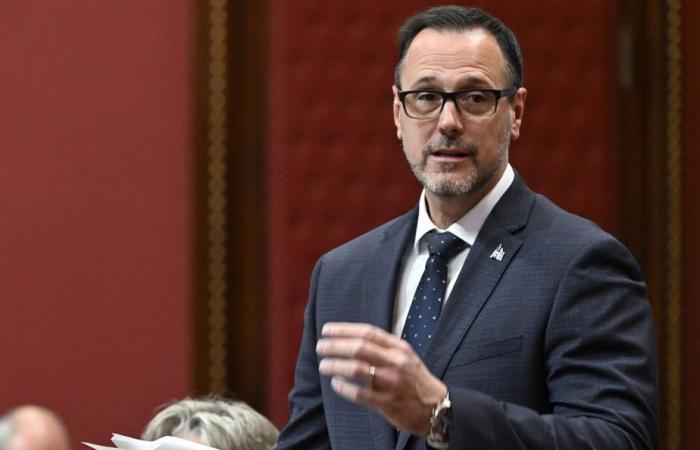
(Quebec) CEGEPs and universities will not be exempt from the bill aimed at reducing the number of foreign students, says Immigration Minister Jean-François Roberge.
Published at 11:50 a.m.
On the first day of consultations in the parliamentary committee, he responded to the outcry from the college and university networks who refuse to have a ceiling imposed on the reception of foreign students.
“We are tabling a bill so that the Quebec government has a better way of controlling its immigration, particularly temporary immigration” which includes foreign students, explained the minister during a press scrum on Tuesday. “We want [en] reduce the number”, but there will be no “wall to wall” or “parametric cuts. »
He mentioned a drop in the number of foreign students in less “promising” programs, which do not respond to a labor shortage.
In parliamentary committee, the minister targeted in particular “certain private professional schools” which have recorded a “considerable increase” in the number of foreign students seeking a quick route to obtaining permanent residence.
Jean-François Roberge points out that the number of foreign students with a valid study permit has exploded in Quebec from 2014 to 2023, going from 50,000 to 120,000, an increase of 140%. There are 57,440 in universities and nearly 9,000 in CEGEPs, according to their representatives.
In his testimony, the French language commissioner, Benoît Dubreuil, maintained that “better supervision” of the reception of foreign students is “essential”. He asked the minister to specify in his bill that French must be taken into account in setting the ceilings for different establishments.
Around a third of foreign students do their studies in English, which is “very high, especially if these people work and especially if they stay afterwards,” he argued. This proportion must be reduced, and not necessarily the total number of foreign students according to him. Because he is “not necessarily convinced that there are too many students registered in the establishments”.
“For French, it’s not questions of number, it’s questions of composition. If you take French-speaking students who come here to study in French, who end up in establishments in the region, I say that it will work in French, that it will enrich French. It’s more a question of having an overall balance between English-speaking establishments and French-speaking establishments,” he explained to journalists.





